Related Research Articles
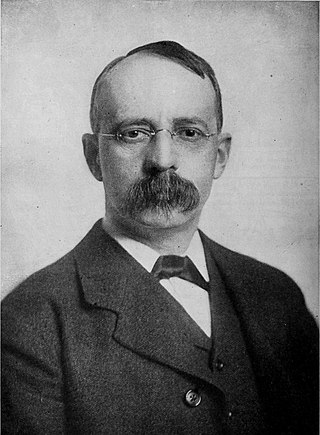
Edward Henry Harriman was an American financier and railroad executive.

William Waldorf Astor, 1st Viscount Astor was an American-English attorney, politician, hotelier, publisher and philanthropist. Astor was a scion of the very wealthy Astor family of New York City. He moved to England in 1891, became a British subject in 1899, and was made a peer as Baron Astor in 1916 and Viscount Astor in 1917 for his contributions to war charities. The census-designated place of Waldorf, Maryland is named after him.

The Levee District was the red-light district of Chicago from the 1880s until 1912, when police raids shut it down. The district, like many frontier town red-light districts, got its name from its proximity to wharves in the city. The Levee district encompassed four blocks in Chicago's South Loop area, initially between Harrison and Polk, between Clark and Dearborn, and then the newer Levee district, between 18th and 22nd streets. It was home to many brothels, saloons, dance halls, and the famed Everleigh Club. Prostitution boomed in the Levee District, and it was not until the Chicago Vice Commission submitted a report on the city's vice districts that it was shut down.

The University Club of New York is a private social club at 1 West 54th Street and Fifth Avenue in the Midtown Manhattan neighborhood of New York City. Founded to celebrate the union of social duty and intellectual life, the club was chartered in 1865 for the "promotion of literature and art". The club is not affiliated with any other University Club or college alumni clubs. The club is considered one of the most prestigious in New York City.

The Committee of Fifteen was a New York City citizens' group formed in November 1900 to combat prostitution and gambling. Established by influential members of New York's upper class, the Committee aimed to expose and reduce vice within the city, focusing particularly on areas where police corruption and political protection facilitated illegal activities. Through a combination of undercover investigations and public advocacy, the Committee gathered extensive evidence on urban vice, eventually presenting its findings to Governor Benjamin Barker Odell, Jr. in 1901. While the Committee disbanded later that year, its findings influenced the creation of the Committee of Fourteen, which took up the cause. The Committee of Fifteen's report, The Social Evil With Special Reference to Conditions Existing in the City of New York, published in 1902, became a cornerstone document for early 20th-century urban reform.
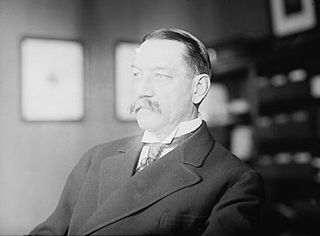
Henry Waters Taft was an American lawyer and writer. He was the son of Alphonso and brother of President William Howard Taft. A renowned antitrust lawyer, he was a name partner at Cadwalader, Wickersham & Taft.
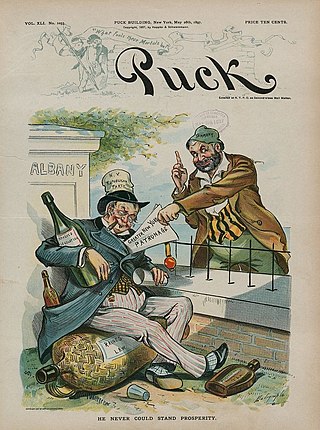
The New York State liquor tax law of 1896, also known as the Raines law, was authored by the New York State Senator John Raines and adopted in the New York State Legislature on March 23, 1896. It took effect on April 1, 1896, was amended in 1917 and repealed in 1923.

A Hoosier cabinet or Hoosier is a type of cupboard or free-standing kitchen cabinet that also serves as a workstation. It was popular in the first few decades of the 20th century in the United States, since most houses did not have built-in kitchen cabinetry. The Hoosier Manufacturing Co. of New Castle, Indiana, was one of the earliest and largest manufacturers of this product, causing the term "Hoosier cabinet" to become a generic term for that type of furniture. By 1920, the Hoosier Manufacturing Company had sold two million cabinets.
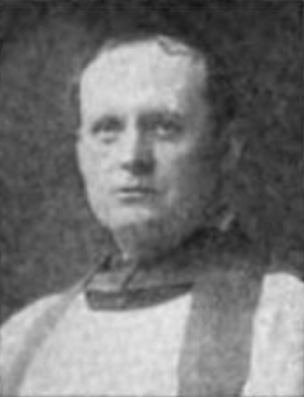
John Punnett Peters was an American Episcopal clergyman and Orientalist.

George H. Kendall (c.1854–1924) was the president of the New York Bank Note Company that printed stock certificates. He was also an art collector.
The Massillon Tigers were an early professional football team from Massillon, Ohio. Playing in the "Ohio League", the team was a rival to the pre-National Football League version of the Canton Bulldogs. The Tigers won Ohio League championships in 1903, 1904, 1905, and 1906, then merged to become "All-Massillons" to win another title in 1907. The team returned as the Tigers in 1915 but, with the reemergence of the Bulldogs, only won one more Ohio League title. Pro football was popularized in Ohio when the amateur Massillon Tigers hired four Pittsburgh pros to play in the season-ending game against Akron. At the same time, pro football declined in the Pittsburgh area, and the emphasis on the pro game moved west from Pennsylvania to Ohio.

Young's Hotel (1860–1927) in Boston, Massachusetts, was located on Court Street in the Financial District, in a building designed by William Washburn. George Young established the business, later taken over by Joseph Reed Whipple and George G. Hall. Guests at Young's included Mark Twain, Elizabeth Cady Stanton, William Lloyd Garrison, Charles Sumner, Rutherford B. Hayes, and numerous others.

Ogden Haggerty Hammond was an American businessman, politician and diplomat who served as United States Ambassador to Spain from 1925 to 1929. He was the father of Millicent Fenwick, a four-term Republican member of the United States House of Representatives from New Jersey.
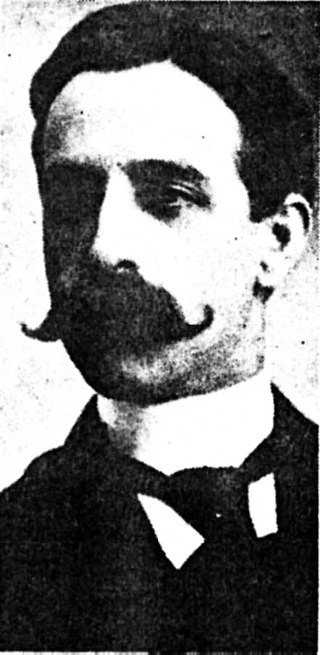
Jacob J. Wise was a Republican mayor of Massillon, Ohio from 1898 until 1902. He was also the Clerk of Massillon City Council for Massillion from 1903 until 1910. In 1912 he was elected to Ohio Senate for the 80th General Assembly.

The American Amateur Hockey League was an amateur ice hockey league in the United States. The league was founded in 1896, and was based in New York City and New Jersey, until 1914, when the Boston AA joined the league. In the 1900–01 season a team from Philadelphia, the Quaker City Hockey Club, also played in the AAHL. The league ceased operations after the 1916–17 season.

William Edward Parsons was an architect and city planner known for his work in the Philippines during the early period of American colonial period. He was a consulting architect to the Insular Government of the Philippine Islands from 1905 to 1914, and designed various structures, most notably the Gabaldon school buildings.

Hartford City Glass Company was among the top three window glass manufacturers in the United States between 1890 and 1899, and continued to be one of the nation's largest after its acquisition. It was also the country's largest manufacturer of chipped glass, with capacity double that of its nearest competitor. The company's works was the first of eight glass plants that existed in Hartford City, Indiana during the Indiana Gas Boom. It became the city's largest manufacturer and employer, peaking with 600 employees.

Paul North Rice was an American librarian who served as Chief of the Reference Department of the New York Public Library, Executive Secretary of the Association of Research Libraries and President of the American Library Association.
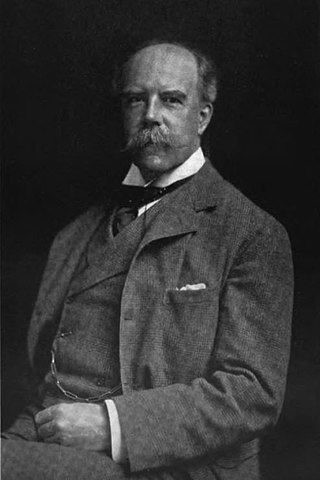
Austen George Fox was an American lawyer and philanthropist.
References
- ↑ "Committee of Fourteen in Report for 1917 Denounces Tolerance of Pseudo Clubs". The New York Times . March 11, 1918. Retrieved 2012-01-17.
The Committee of Fourteen, which was organized in 1905 to fight commercialized vice as a result of widespread criticism of conditions in the city, in its annual report made public yesterday announced that it had found moral conditions well guarded, with isolated exceptions, around army camps near New...
- ↑ "The Fourteen Will Attempt to Get Brewers to Withdraw Their Backing". The New York Times. August 24, 1909. Retrieved 2012-01-17.
The Committee of Fourteen, which was formed for the purpose of suppressing Raines law hotels, according to announcement made yesterday, has entered into negotiations with brewing concerns and surety companies with a view of establishing an 'unofficial discretion' that would have the effect of preventing the opening of saloons or hotels of a disorderly character in the future.
- ↑ "Committee of Fourteen". New York Public Library . Retrieved 2012-01-17.
- 1 2 Mackey, Thomas C. (2005). Pursuing johns : criminal law reform, defending character, and New York City's Committee of Fourteen, 1920-1930. Columbus (Ohio): Ohio state university press. p. 111. ISBN 0814209882.